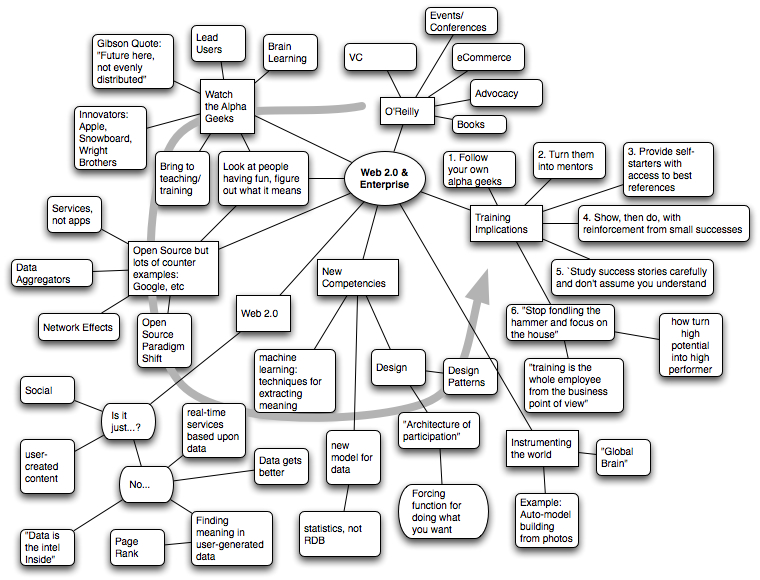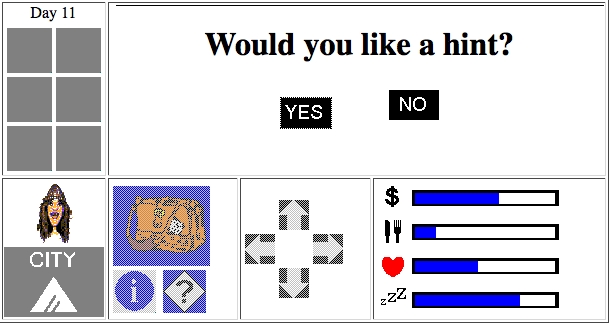Tim O’Reilly, Web 2.0 guru, talked to us about what web 2.0 is and led us to his implications for what we do. He started off talking about tracking the ‘alpha geek’. These are the folks who manage to thrive and innovate despite us, rather than because of us. He’s essentially built O’Reilly on watching what these folks do, analyzing the underlying patterns, and figuring out what’s key.
He talked about the stories that Web 2.0 is about open source, or social, were surface takes, and by looking at leading companies, e.g. Google, there was something else going on. It’s not just user-generated content, but mining user-generated data for value, and then adding value on top of it. “Data is the intel inside.”
This led him to key competencies going forward being machine learning, statistics, and design. It isn’t about well-structured data, but about finding the nuggets in messy data. And it is about design as an “architecture of participation” that gets users to act in the ways you’d like.
His take home message was six points that boil down to watching your alpha geeks, and use them to help guide what you should be doing, to help others achieve their potential. An inspiring message in a very geek-cred way :).
I concept-mapped it:



 I hadn’t seen (and wish I had :). He’s citing another
I hadn’t seen (and wish I had :). He’s citing another